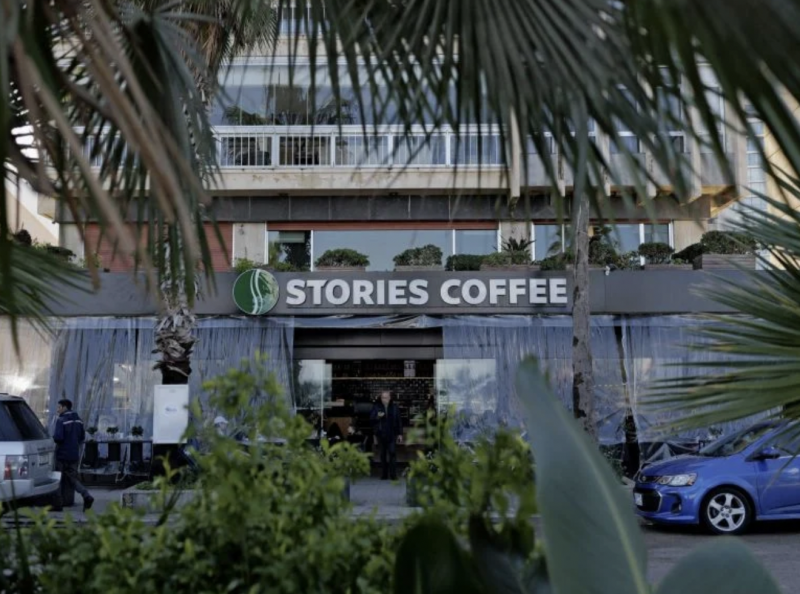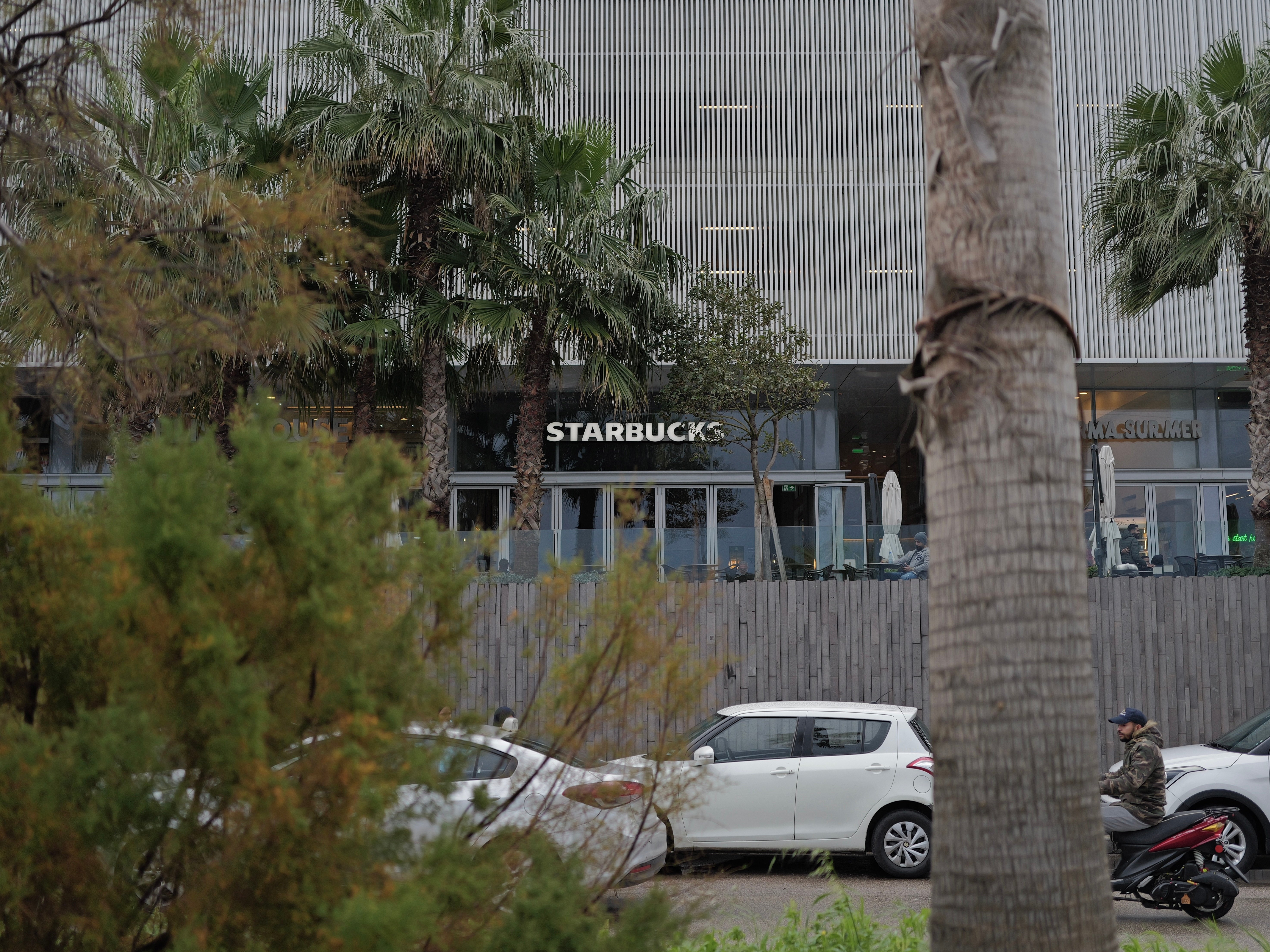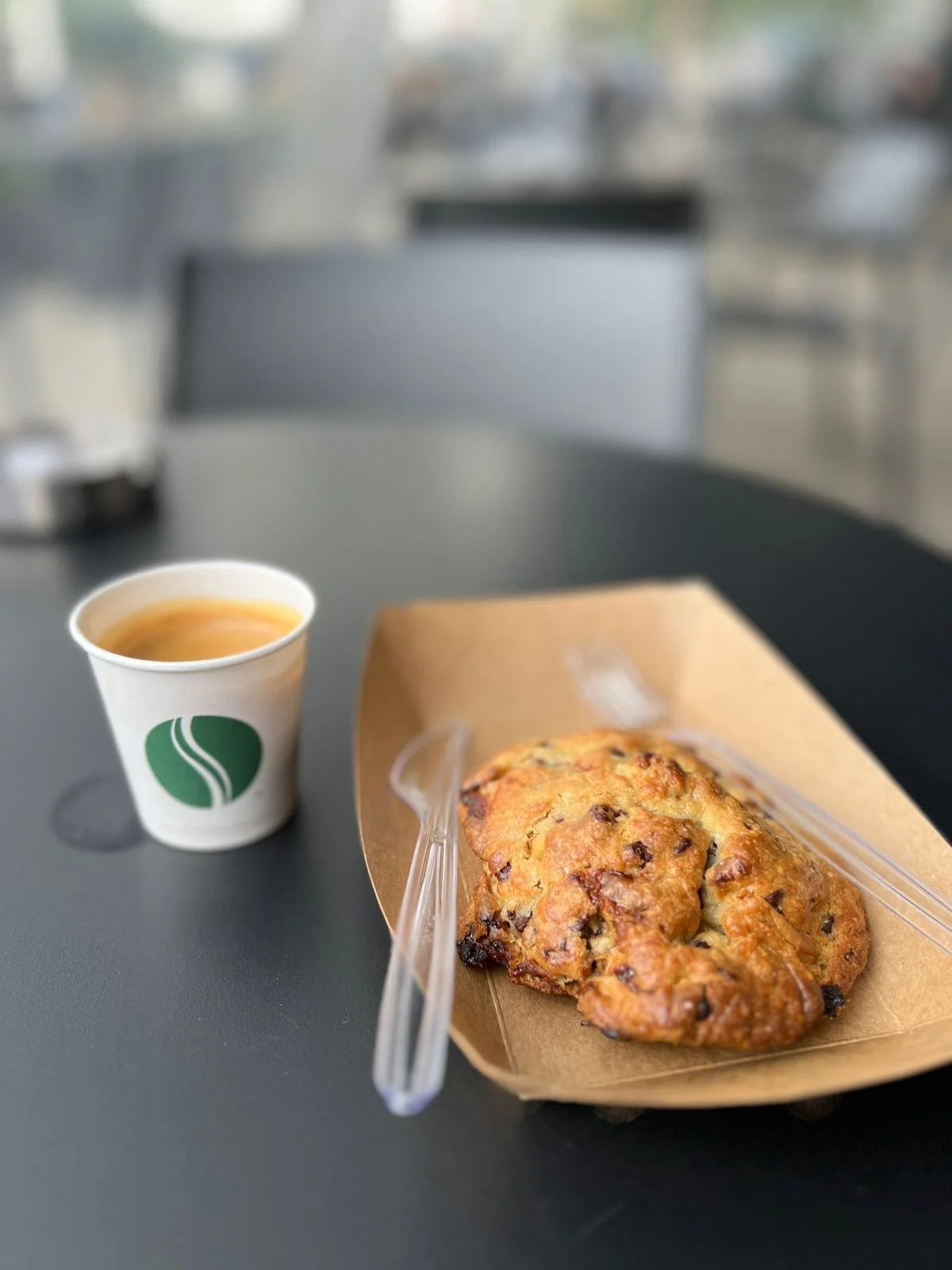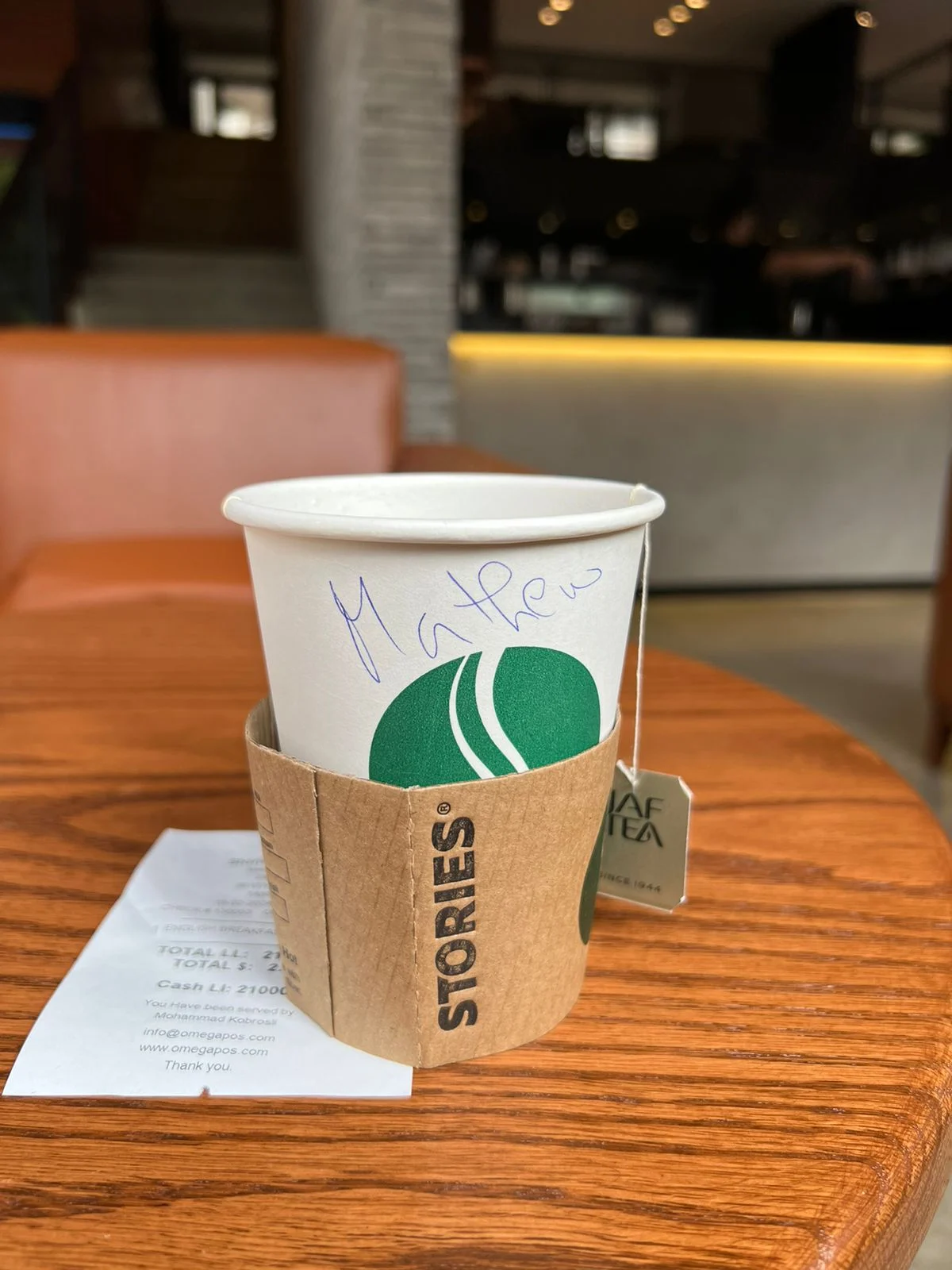
A branch of Stories Coffee in Ain al-Mreisseh, Beirut, Feb. 18, 2024. (Credit: Matthieu Karam)
Circular green logo, black walls, wooden furniture, cups with your first name written on them... This is not one of the 42 Starbucks cafes established in Lebanon, but rather "Stories Coffee,” a Lebanese chain that has been all the rage in recent months, mainly in Beirut, but also in the southern and Metn regions.
"I suppose you want to ask me about a possible resemblance with another coffee chain," said the manager of a chain in Ain al-Mreisseh. For him, there is no comparison: "Our clientele is totally different. With us, you'll find five-year-olds as well as 70-year-olds," he said.
“There's a certain resemblance," he admitted, "but we're not just a cafe. We also offer frozen yogurt, cinnamon rolls, pastries and fresh sandwiches. Our way of presenting these products is unique."
 A Starbucks sign in Ain al-Mreisseh, Beirut, Feb. 18, 2024. (Credit: Matthieu Karam)
A Starbucks sign in Ain al-Mreisseh, Beirut, Feb. 18, 2024. (Credit: Matthieu Karam)
Contrary to the rumor mill in town, Stories Coffee was not born out of the current Starbucks boycott, due to the American company's alleged support for Israel, which has been pursuing its offensive in Gaza since Oct. 7.
The chain, which employs 150 people, was founded in October 2021 in Beirut, as a senior company executive, who wishes to remain anonymous, explained to L'Orient-Le Jour.
Owned by Lebanese Tarek Nasser, the 40-year-old head of THINNKS Ventures — the parent company of Stories Coffee —, the company has two branches in Bir Hasan, but also operates in Verdun, Bliss, Qoreitem, Ain al-Mreisseh, Sour, Zalka and Antelias. Nasser did not wish to respond personally to questions from L'Orient-Le Jour.
Boycotting Starbucks
In Ain al-Mreisseh, Fouad, an 18-year-old student at the American University of Beirut, located a stone's throw from the establishment, finds that "this cafe is a cross between Starbucks and Pinkberry [an American frozen yogurt brand]. Because of the boycott, many people prefer to go to Stories,” he said.
 An espresso and a cookie at Stories Coffee in Ain al-Mreisseh, Beirut. (Credit: Matthieu Karam)
An espresso and a cookie at Stories Coffee in Ain al-Mreisseh, Beirut. (Credit: Matthieu Karam)
"Although Starbucks is being targeted in the Arab world, it is not on any serious list of products or brands to be boycotted," explained Rami Salameh, a member of the boycott campaign by supporters of Palestine in Lebanon.
"The boycott concerns every country in the world, and it has benefited other local companies like ours, but that's not the reason for our success," said the Stories Coffee executive.
L’Orient-Le Jour tried to contact the Kuwait-based al-Shaya Group, which owns the Starbucks franchises in Lebanon, by phone and e-mail but did not get a response. Starbucks management in Lebanon declined to answer our questions.
Investing in times of crisis
Launching a coffee chain in Lebanon amid a crisis is a risky bet. But, according to the executive, "It's in times of crisis that you should invest, especially if you have a concept and an idea.”
While he declined to give precise figures on costs and profits, the employee explains that "several Lebanese investors in Lebanon, the Gulf and the United States" are financing Stories Coffee.
"When the crisis was in full swing, employee salaries at other companies were either in Lebanese pounds or partly in dollars. With us, salaries have always been fully dollarized. We want to attract qualified employees and, to do that, we need good salaries.”
Stories employees declined to comment on this point to L’Orient-Le Jour, but an industry source confirmed the information.
Given its success in Lebanon, Stories Coffee intends to continue its expansion plan "in all regions of the country.”
"The secret of our success is the good quality and variety of the products we offer,” he stressed. The Lebanese chain does not present itself as a cheaper Starbucks, even if the prices of some products are around 10 percent lower than those of the American chain.
"It's a good cafe, the service is satisfactory and the drinks are good," said Ahmad, 19, sitting with a friend in Ain al-Mreisseh. "Obviously there are a lot of similarities with Starbucks, but that doesn't bother me," he added. "An employee misspelled a customer's name on his cup. It reminded me a lot of Starbucks," he joked.
 Tea at Stories Coffee in Zalka, a northern suburb of Beirut. (Credit: Matthieu Karam)
Tea at Stories Coffee in Zalka, a northern suburb of Beirut. (Credit: Matthieu Karam)
In Zalka, some 10 km north of Beirut, Joelle, a 34-year-old customer, was in Stories Coffee for the first time. "I had once seen the sign in Ain al-Mreisseh, and at first I thought Starbucks had changed its name to make people forget the boycott," she said. "I think [Stories Coffee's] strategy is very clever, especially as they are setting up opposite or near Starbucks,” as is the case in Zalka and Ain al-Mreisseh.
This article was originally published in L'Orient-Le Jour. Translated and edited by Yara Malka.